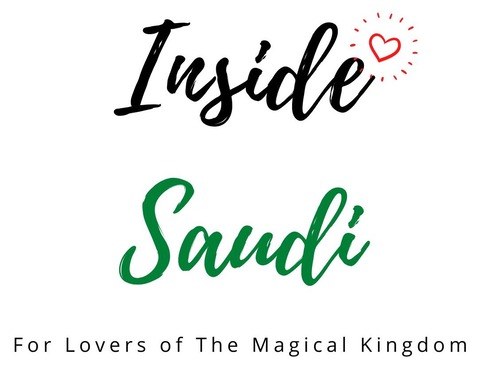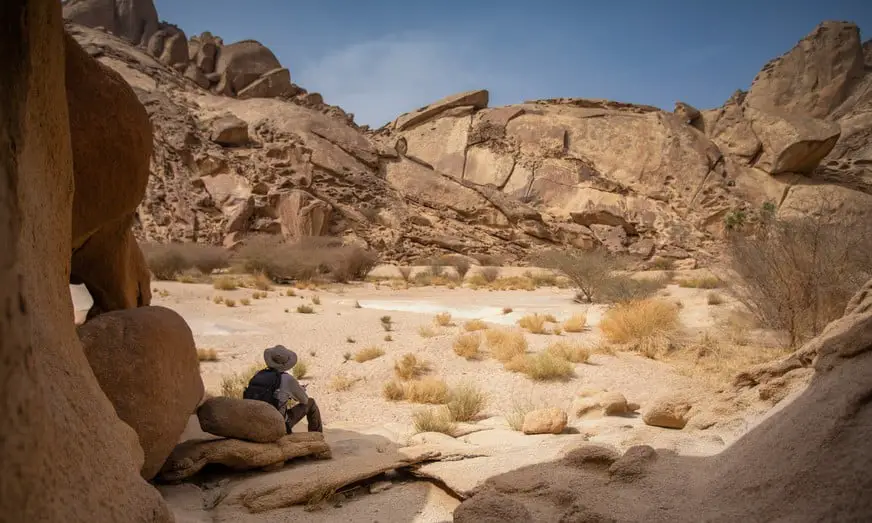
Did You know that
people outside Saudi Arabia have very little idea of how foreign expats live in the kingdom? From their questions, they sometimes believe that we are living in desert tents, riding camels to work, hunting wild animals for food and scavenging for raw nuts and berries.
Also, outsiders often fear for our safety thinking that we are always being bombed or attacked by some knife-wielding fanatical Saudis. But, nothing could further from the truth. I see that media propaganda is still doing a great job.
In fact, Saudi Arabia is a fast developing country, but with all the benefits and trappings of a modern first-world nation. It has big important cities like Riyadh, Jeddah, Mecca, Madinah, Yanbu, Al Khobar, Dammam, Al Hasa and many other smaller towns and regional districts.
It has good infrastructure, modern housing, great wide roads, electricity, running water, 100% AC, hospitals, schools, universities, parks, wonderful beaches, sports facilities, hi-speed internet, good transport, Malls, and traditional markets, top-class hotels, and restaurants.
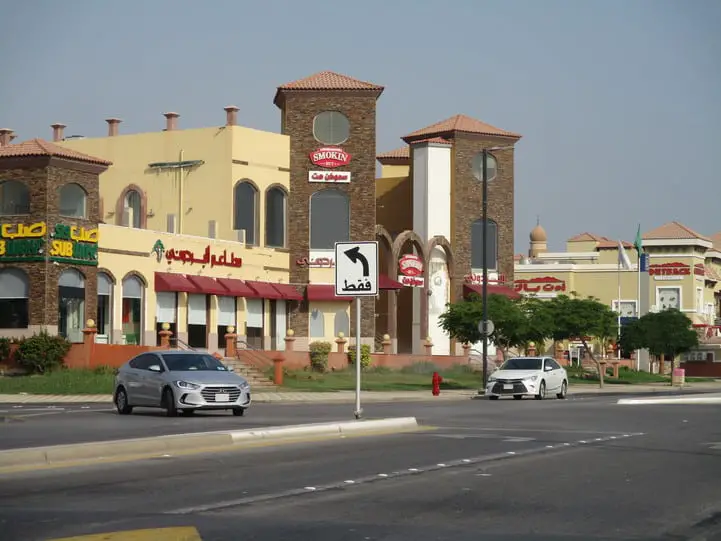
Today, products and goods are available in shops or online from anywhere in the world. Above all, the streets are very safe and life, in general, life is very good.
However, few outsiders are willing to believe me. They continue asking questions about safety and social oppression and are still very concerned. I say, let them come and see for themselves.
Visiting Saudi Arabia
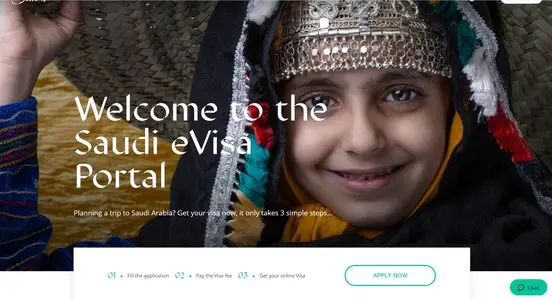
But until, September 2019, that was not possible. Today, however, more than 51 countries including the US, UK, and Schengen Visa holders can just jump on a plane and come to Saudi Arabia and easily enter the country by getting the new Saudi eVisa for tourism or simply pick up a Visa on Arrival at the electronic kiosk at the airport Arrivals.
Click the following link to read my post about the One-Stop Guide To The Saudi eVisa for Tourists and all the low down about how to get a Tourist Visa including the ways to avoid the agency money traps.
and all the low down about how to get a Tourist Visa including the ways to avoid the agency money traps.
Increasingly, with Saudization and the burden of the punitive expat levy, life has been getting more and more difficult for foreign expats. The result is that many have lost their jobs to Saudis and returned home.
Those that still remain can no longer afford to keep their wives and children in Saudi Arabia due to the exorbitant government taxes.
Click to read my perspective in The Guide To Saudization and the Nitaqat Program and the government efforts to Saudize the workplace in the kingdom.
and the government efforts to Saudize the workplace in the kingdom.
The Foreign Nationals Living in Saudi Arabia
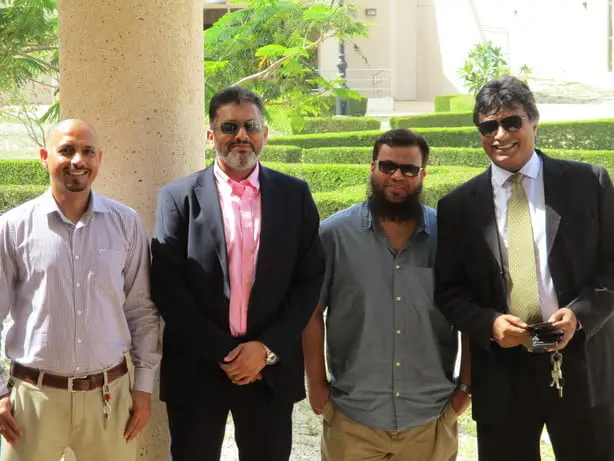
The total population in Saudi Arabia is 34 million. Nearly 11 million of those are expat foreigners and their families accounting for almost 33% of the total population. By comparison, in the USA, it is only 15%.
As you might expect, they are young. Most are between the ages of 25 and 45. Out of 11 million, Arabs account for 90% whilst 10% are Afro-Asian. Westerners are only 0.12 million, a tiny fraction.
The following list tells you which foreign nationals live in Saudi Arabia and their numbers.
| Nationality | Population | Percentage |
| Indians | 2.3 to 3.2 million | 14% |
| Pakistanis | 1.3 to 2.7 million | 10% |
| Bangladeshis | 1.2 to 2.1 million | 8% |
| Egyptians | .8 to 2.9 million | 8%-10% |
| Syrians | .8 to 2.4 million | 8%-23% |
| Yemeni | .7 tor less | 7% |
| Filipinos | .6-1.8 million | 7%-10% |
| Indonesians | .5 to 1.5 million | 4%-8% |
| Sudanese | .44 to .47 million | 4%-8% |
| Afghanistan | .3-.4 million | 2%-3% |
| Burma | .25 million | 1%-2% |
| Jordanian/Palestinian | .22 to .4 million | 1%-2% |
| Ethiopian | .15 or less | .1% |
| Lebanon | .14 to .21 million | .1% |
| Westerners | .12 million | .1% |
You can click and read my article about The Real Cost of Saudi Expat Levies and how they badly affect foreigners in the kingdom.
and how they badly affect foreigners in the kingdom.
So what Do Expats Really Think About Living in Saudi Arabia?
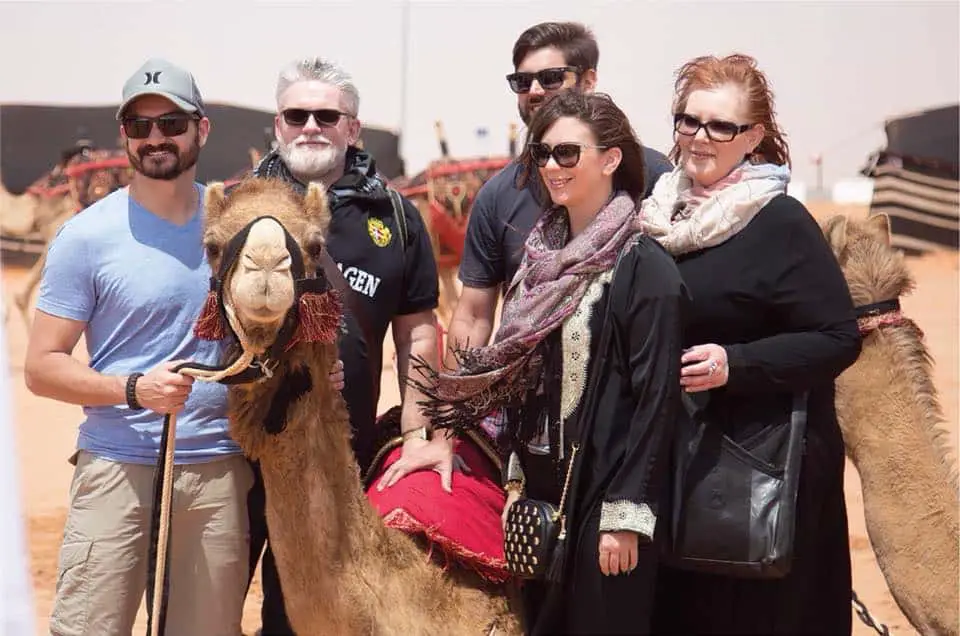
To answer that question, I have let individuals speak for themselves in this article from the answers to various questions they gave on the Quora.com website.
website.
The answers, as you might expect on Quora, are mixed and differ according to their experiences of living in the kingdom, their nationality, religion, background, and outlook.
Some are useful and informative whilst many others are difficult to read even downright negative usually by those who have never lived in Saudi Arabia but still holding strong views.
I have avoided publishing these negative comments and tried to include more positive, balanced points of view. Also, I take their kind permission to republish their answers in this article.
There are 5 stories from women of different nationalities and 5 stories from men. I hope you enjoy them.
How Does It Feel To Live As An Expatriate In Saudi Arabia?
Women
1. Hetal Tank, Publisher, India
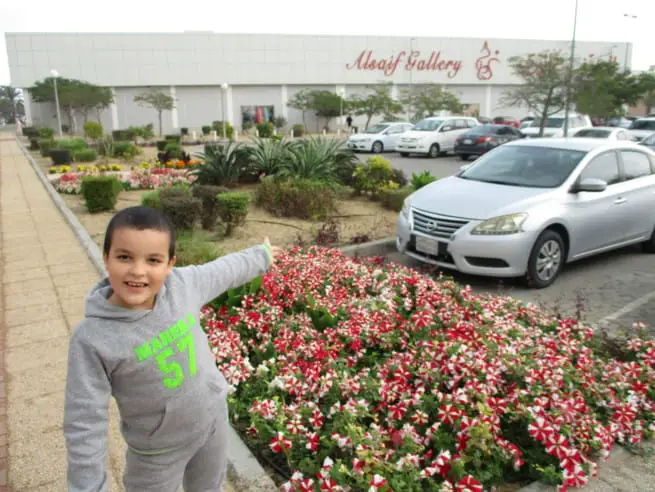
Honestly being a woman it was difficult when I arrived here. It took time for me to understand the rules and regulations. But slowly I started loving it.
It’s so safe to go anywhere. Women love shopping and during the sale time, it’s like heaven on earth.
Overall people are good, they give respect and priority to women. The cost of living is much cheaper, working hours are such that you can balance between family and work.
There are many places to visit and enjoy, with friends you learn and find ways to have good times. It’s been 5 years and I have bundles of good memories. It feels great here, you get good money, food, a good place to live, enjoy with friends and family, what else you could ask for.
2. Aisha Choudry-Housewife, Mum, the USA and Muslim
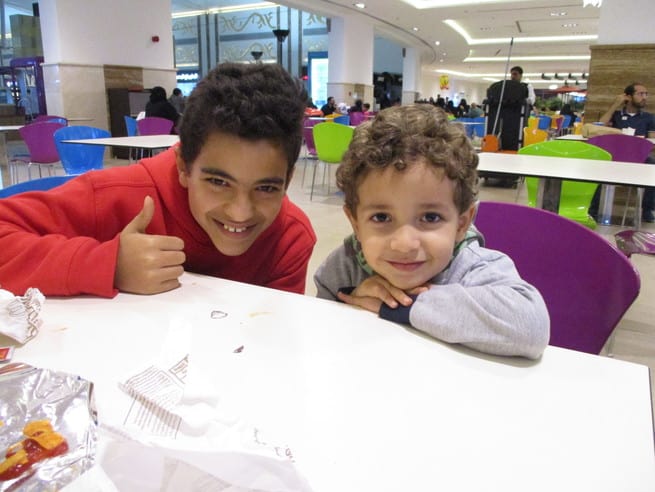
I live in Saudi Arabia currently. I’ve been living here for over five years. I am a woman with five kids and my husband is a doctor in the best hospital and in the best position. (We are from the US originally).
Now the question is how does it feel to live in Saudi Arabia as an expat, not what is Saudi Arabia is like for non-expat life.
My experience due to those mentioned factors will be very different than those considered in the ‘working labor’ class expats or expats with less salary. I am honestly not trying to be rude, but point out how vastly different experiences can be. So all sides deserve to be heard..right?
For us, my husband’s hospital provides accommodations in a compound. The salary is the same as in the USA but our savings are much more. We do not have any utility or rent bills.
We do not have any medical bills and get care at his hospital for every need. The hospital pays for all of our kids’ education as well. In addition, we each get business class tickets back to the US every year.
If we want we can take economy class tickets and use the rest on vacation or savings. Or we can just not go on vacation and pocket all of it. So we only have to pay for food, clothing, our maid, etc whatever we spend.
Our compound is enormous and our kids have a soccer field, lots of pools, three gyms, squash court, garden, playgrounds, and tennis.
We have a mini-market like a convenient store on site. We have independent buses that are free if we don’t have a car. We also have a free pick and drop when we go to the airport and limo service for local transportation. Or we can use our own vehicles.
As for me, I have a driver who drives me and loads and unloads my groceries, runs errands, goes grocery shopping with a list or whatever else I need to do. I have a full-time live-in maid who cooks, cleans, and irons.
We pay our driver and maid extremely well and reward them abundantly. In return, they do a great job and feel happy. We send our maid and driver on vacation every year for 30 days and also in between as we vacation.
So basically, I spend my time doing things that I want to do. While my kids are in school I’m free to do whatever I wish. I exercise daily in the gym and walk with the ladies outside in the evening or with my husband. My kids have an amazing social life, surrounded by decent kids.
People here are mostly Muslims but from the US, Pakistan, or UK in our compound. There are some from Syria and parts of Africa but less.
If we could retire here we would. But there is no way to do that right now. We also love UAE and have property there. They allow people to retire there so we might consider that after I kids go to college.
My life is not elite. Everyone who has a good, professional job has a great life here. If you’re a nurse though and a good hospital then yes you’ll have a great life also.
Do you know what I especially love? I love that I can take my kids to the beach and don’t have to deal with drunk thugs with no clothes. I like it that there are families sitting on the sand having dinner or lunch. I love it that I know 99.9% for sure I can go out and nothing happens to me.
I will not get robbed in Walmart parking lot or my house will NOT get invaded. I love it that my kids don’t get picked on for being different due to being Muslim. I love it that we have access to all of the American food and it’s Halal.
I love it that I can go to the grocery store and buy whatever I want and know it’s Halal. I love it that if I’m out and it’s time for prayers, I can find a place to pray that doesn’t include a dressing room in the mall or the side of the street. I could go on.. basically, I really LOVE my life here.
There are a few things that I wish would improve, like our apartments are a little bit small for us having five kids. We have 4 bedrooms and 3 baths, but we have given our maid one bed and bath.
So we’re a little cramped but we’re dealing with it. We took the liberty of updating our apartment as it was a little run down. But we planned to live here long term and I felt ok with that.
There is so much to love here. People who don’t have a good time here, in my opinion, are looking for the wrong kind of good time. This is an amazing family place and yes not a place to hook up and drink and do drugs… like I said… my kind of place.
As with any country we live in, on the governmental level there will always be things we don’t agree with, but those things don’t affect me anyway wherever I live. I won’t find the perfect government anywhere.
Now as for nonexpat life. I honestly can’t attest to what’s really normal or common. I’ve heard things yes, but how common are those things? I’m not very sure. So I can only speak to what I know 100%. Expats have a dream life here if you have a mid to professional career.
3. Katie, Teacher, Republic of Ireland, Non-Muslim
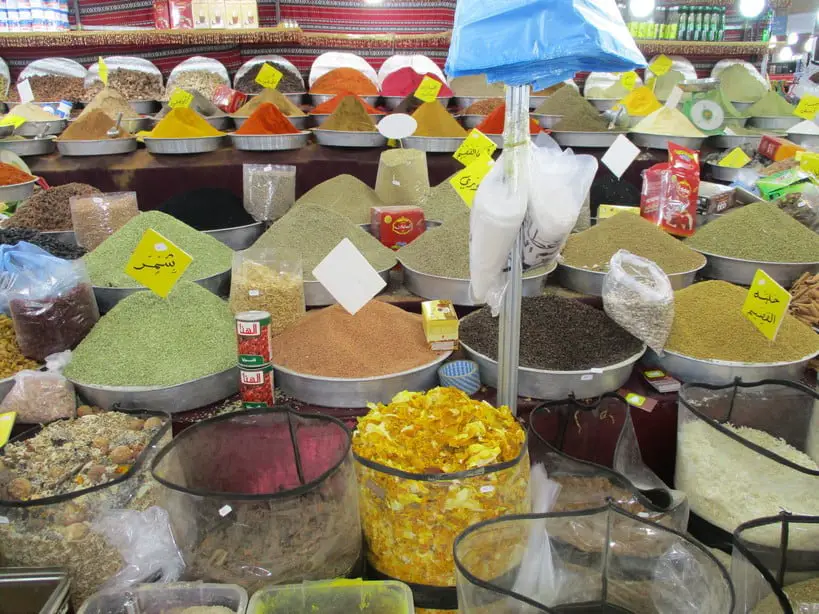
Hi, My name is Katie, I am a co-worker of Pat Halls. I have worked in KSA for the past 5 years. I have been living and working in KSA since 2011.
I am from Co. Kildare in the Republic of Ireland. I have a blog running on Quora about this topic, it relates mostly females but everything with the exception of the Abaya also relates to the men’s side also.
This is my blog introduction, there is plenty more advice and tips for KSA survival, life and work coming soon: Here, in my blog, I will give you the low down on the pros and cons of living in KSA, I am happy to help with any questions you have.
I can advise you on anything and everything from, considering going to work in KSA, visa processing, arriving for the first time in Saudi, the pitfalls to look out for when applying and accepting work, what you can expect, culture shock and how to cope with it, wearing abaya and the rules, traveling in the country and what to expect from your work environment.
As well as working in KSA for 5 years. I have also traveled extensively around Saudi so I can offer advice about all the different places to work and various locations.
When you decide to look into working in Saudi Arabia, it can seem like an extremely formidable experience.
There is so little information about this country that you can find online (and unfortunately it’s almost always bad), and the perspective you might have now, is one of extreme conservatism and a country closed to the rest of the world.
Well, I am happy to tell you that Saudi Arabia is a booming and quickly developing country.
During the 5 years, I was living there my surroundings changed completely. I found very quickly that the restrictions for women aren’t as unliveable as they seem when looking from the outside in.
But be under no illusion this experience is not for everyone and there is an adjustment to be made. You will be fascinated, in awe of, and entertained by the logic of this culture, but you will also experience a shift of perspective that you may, or may not be ready for.
As with every country in the world, there is good and bad and KSA is no different.
I will start by dealing with “The start” – the right questions to ask yourself, finding a good recruiter, applying for work and interviewing, accepting an offer and visa processing. Then, I will describe all the experiences you will have from arriving in KSA for the first time up until you are ready to leave.
Please feel free to leave comments. I am completely aware that, Saudi is not for everyone and I am in the full knowledge that I am in the minority when I say that, I Heart KSA.
4. Samantha Smith, Psychologist, USA
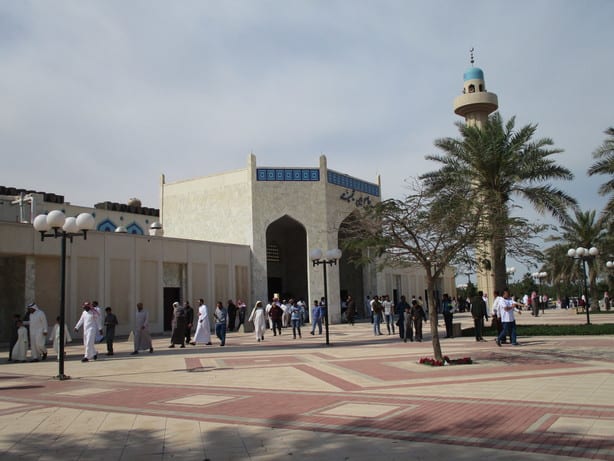
I lived in Saudi Arabia for almost 12 years as a Saudi wife. I wore the veil and followed the customs completely. In the beginning, I hated it. I wasn’t readily accepted by my husband’s family and I didn’t speak or understand the language, which made it extremely difficult.
Eventually, I did learn the language and I was accepted by my husband’s family. I learned the customs.
I lived with my mother-in-law for the first 2 1/2 years. That too was difficult. Every woman wants her own home, but if I had not lived with her, I would not have learned so much.
By the time I left, I was deeply in love with Saudi Arabia and it’s people. I was extremely sad to leave. It had become my country.
I loved the closeness of the families. In the West, you see many single mothers struggling to support and take care of their children. That doesn’t happen in SA.
There, when a woman divorces, she goes back to her family, her parents, her brothers, and sisters, etc. and they take care of her and her children. She doesn’t have to raise them on her own. The family raises them.
There is also no need for nursing homes for the elderly. They are kept at home with the family and taken care of by the family. They are respected for their wisdom and always treated with respect, never as a burden!
Families are so close-knit. Almost every night the children and grandchildren all go to the grandparents’ house for a huge dinner and to just have fun.
The family stays so close to each other this way. You never feel lonely. If you have a problem there is always someone to talk to. It feels wonderful to be loved by so many people!
Until today I go back to the kingdom once or twice a year to see my sons and their families and my ex-in-laws. I still love them like my mother and my sisters!
Another very important thing I loved was that my children were always safe! We didn’t have to worry about pedophiles, kidnapping, etc. They could play outside and we knew they were safe! And they always had tons of cousins to play with, because the families tend to be so large!
Did I mind covering my face with the veil? Not at all! I didn’t care about covering my face! I didn’t feel the need to have strangers see my face. If I went to my mother-in-law’s house for a big family dinner or to a wedding or party,
I took the veil off as soon as I arrived. It was only in front of men that were strangers that I covered.
My husband was the love of my life. I happily did everything for him. I also did it for my father-in-law, who I loved more than my own father. He was the kindest man I have ever known and understood how difficult it was for me in the beginning and did whatever he could to make it easier. I will always be grateful to him.
Saudi Arabia is and will always be my second home. It’s not perfect, but what country is? It’s quickly changing! The young women cover their hair now but are abandoning the veil covering their face. I still wear mine out of respect for my family and because I am an older woman. I miss my life there.
5. Amany Fawzy, Mum, Teacher From Egypt
If you’re a foreigner, you’d be bored. You’d be safe! it’s very safe and quiet. But, you’d be bored. The weather is so hot in most places most of the year, so staying at home is actually your best choice.
You get off your work, you watch TV and play games. If you don’t have a family there or friends, you’d feel so lonely. If you have them, then you could feel lonely together.
But it’s heaven for introverts, researchers, writers, and mediators. You will have a lot of time and no interruptions. I wrote a book there and was about to publish it, then I came home and I’m still about to publish it,
I published an article in a magazine and memorized the longest two Surahs in the Quran; 76 pages and a few pages of the next one; that’s where I am to this day.
I learned how to bake and grill fish.
Other than shopping there is nothing much to do. There are huge luxurious Malls in all cities and even in some villages.
If you love nature and you made some friends, you can enjoy a safari, spending a day or more in the desert, grilling, riding camels and having coffee and dates in tents. Also watching sunrise and sunset there is really something.
There are resorts on the red sea, kind of privet clubs sort of things. There are cities like Ta’if which is considered a summer resort
The national dish is Kapsa which consists of rice and lamb or chicken. However, you’d find all fast-food franchises and many international cuisines. You’d find almost every food item even fresh fruit and vegetable from everywhere.
There are foreigners from everywhere, some of them have been living there for decades. You’d meet different nationalities and learn about their culture and taste their food. It’s actually where I tasted Afghani bread, Pakistani and Indian food for the first time.
Since I was there in my last visit almost three years ago many things have changed; women are allowed to drive finally and I hear there are fewer restrictions.
If you are Muslim you’d enjoy visiting the Holy cities of Mecca and Medinah and praying there. This is a dream for every Muslim. I enjoyed living in Mecca for two years; I’d walk in its streets close to the Haram Mosque and just imagine I maybe stepped where the Prophet Mohammed (SAW) had once stepped!
I love the names of the streets in Makkah. I go and feel overwhelmingly lost from the world and found in a parallel one, where everything is different, where I don’t feel my body like I’m flying.
I met in Makkah people from everywhere some of them just used signs and smiled at me.
Expats in Saudi Arabia make small communities of their own that help them feel less away from home.
I noticed the workers and cleaners are addressed as Sadeq صديق means friend I liked that.
Saudi people are conservative, but they would invite you to their events in which there is a separate place for each gender.
Neighbors send food gifts on many occasions and holidays. In all restaurants, there are places for men and places for women/families like separate rooms.
I hated that passports are held by workplaces; you can’t leave without their permission. In their defense, they have a huge number of residents that could cause a lot of problems if they left without paying their bills and the like. Still, I hated that more than anything.
If you could bring your case to the court you usually get your rights. Remember that when you agree to sign a work contract. If you’re a visitor you have nothing to worry about. Just don’t cross lines with the opposite gender at least in public places. The dress code is better to be kept though there are currently fewer restrictions.
Most Saudi women are educated, working and they take part in most social and work activities.
They aren’t as oppressed as you hear. They have comfortable lives. When they weren’t allowed to drive they had their own cars with drivers!
I have my reservations of course, but life and everyday people are not as you hear about them. You could still have good time especially if you like quiet places and enjoyed learning about different cultures and different natural areas.
Men
1. F. Adrita, Student, Bangladesh, Born In Saudi
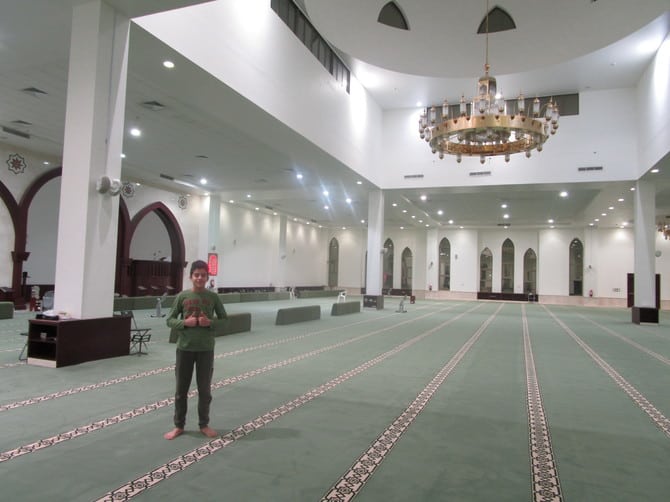
It’s like having a home you know that once you leave, you can never return to. But how can you call a place like that home at all?
After all, for everyone, home is a place you can go back to for comfort and not a place that will throw you out once you are no longer useful.
But that’s the reality for so many expatriates here. We were born here. We were raised here. We learned the streets like the back of our hands. We spoke the language with the natives.
We stayed here for years and years and made unforgettable memories. We learned to love this country like our own. Maybe even more so. Slowly, this place felt more like home than anywhere else.
But as you grow up you realize you can’t stay here forever. It’s joyful at first because the strict rules and life can get tedious. But then you realize, no matter what, it’s where you’ve grown up. It’s your home.
But once that exit visa is stamped, nothing will be the way it used to be. No more home. Say goodbye forever.
As I approach the end of high school these thoughts haunt me and plague me, that I will have to leave home behind, so abruptly.
It is quite cruel.
2. David Pfeiffer, Business Owner, USA/UK, Non-Muslim
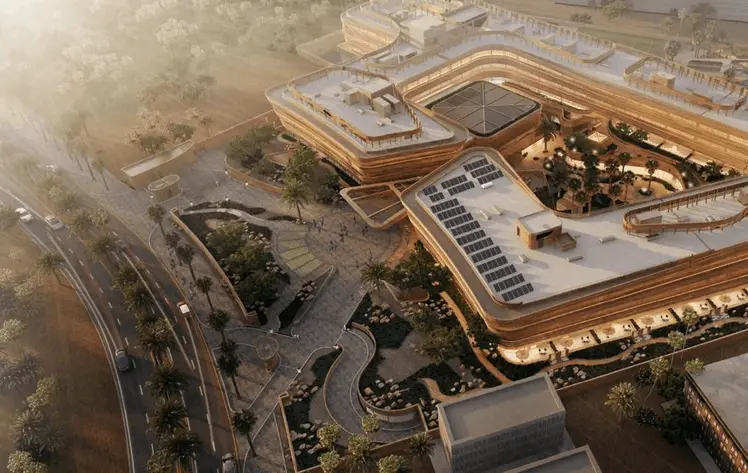
I lived in both Riyadh and Jeddah for three years. No need to repeat the many entirely accurate comments made already. I do want to add something.
I am American, and while someone mentioned this before, I think it is important to emphasize that most Westerners, in particular, Americans and Brits, are immune from a lot of hassles.
This is slowly diminishing as the Gulf War becomes a memory. However, the continued involvement of the US and Britain in the defense needs to the KSA makes for an important relationship.
Western defense workers have a particularly easy time with the bureaucracy, police, landlords, et al. Their sponsors are hugely important, so police, landlords, etc. simply do not want to get into disputes with sponsors.
Also, someone characterized as mercenaries. You may say that about others, in particular persons that perform lower-level tasks in Saudi companies. However, in my case, that is 100% wrong.
I ran my own successful business, spent lots of time in the diplomatic quarter at parties and concerts, etc. My clients were important defense contractors and Western companies with vitally important business in which they partnered with important Saudi companies.
The only reason I left was my wife. She had worked for a bank ‘undercover’, coming in the back door of the bank and working out of sight.
Ultimately the lack of challenging work and the other issues of lack of respect (like the right to drive) pushed us to Kuwait, which is a wonderful place in almost every respect.
In my case, in the KSA I kept my own passport and my sponsor would never think about keeping me from leaving. He is Saudi, but he is a man of integrity. I am not his slave and in fact, he found the whole sponsorship mechanism a waste of time.
In short, the KSA experience is what you make of it. Again, I agree with almost everything in the comments except those on mercenaries. Some of us are not; some of us visit the desert; some of us spend time with Saudis, and some of us have social lives and meet remarkably well-traveled and interesting people. I make a great income, but that is from hard work in the same way I have income in the West.
3. Nasser Gorsi- Teacher, UK
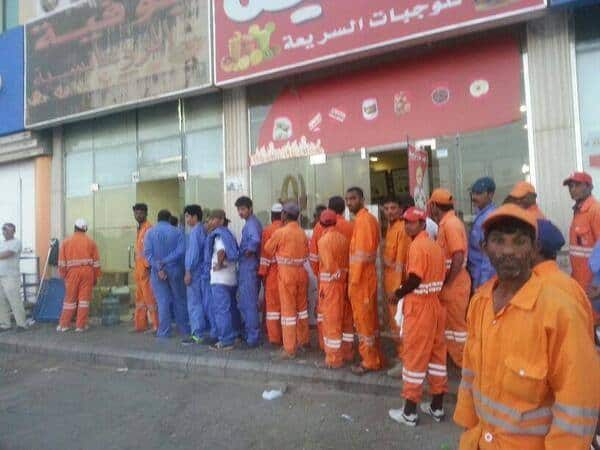
Being an English teacher at a government college people respect me whenever they ask about my occupation.
There are millions of expats working as laborers who will complain about their poor living conditions, treatment, and working conditions. Many laborers are underpaid with no fixed working hours.
The government of Saudi Arabia clearly states that they treat everyone equally. First, we must understand that every country has a set of beliefs, a system, and rules in which they work.
Life in big cities is very different from small ones. If you go to Jeddah, Yanbu, Riyadh or Medina you will meet educated Saudis. If you go to some remote area, you will come across Bedouins who are hardworking but less or no education.
Saudis are very hospitable and helpful. Food is very cheap, no income tax and rents aren’t as high as the Western countries.
If you aren’t interested in women, don’t drink or do drugs, then Saudi is one of the best places to live in because you can earn and save the maximum. Malls are a great place for shopping and spend quality time.
Saudis love camping and socializing. My colleagues often take me to beaches, deserts, camp and spend quality time together all night.
I would consider Saudi far safer than in many countries. There are many cases about employers mistreating their employees but then this work bullying in almost every country.
You can travel at midnight anywhere and you might never even hear of robberies.
No country is without problems. If you complain while living here then there is no end to it. We all can speak something bad about any country. But if you see good, then you will start enjoying. I often see my college janitors eat with us during a party.
Life in remote Saudi is very peaceful. The government has done a lot for Saudi people.
If you are with your family, nobody would try to mess around you while you sit in a public place. I have seen boys don’t even sit near the families at beaches or parks. Perfection is just a myth, name a country where you cannot find troubles.
4. Hugo Merolla, Law and Engineering, Australia
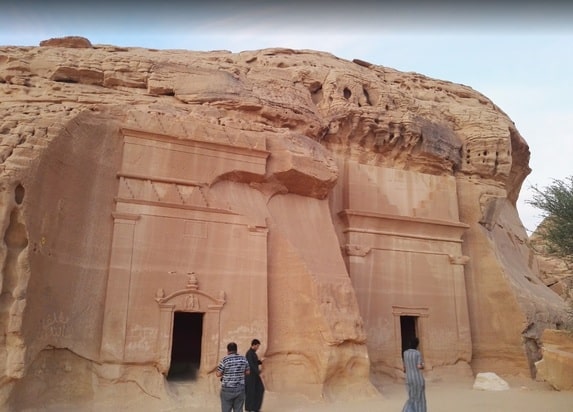
I add my views from a non-Arab, expat point of view entering my third year in Riyadh.
For an expat Saudi Arabia has the advantages of high salaries, no tax, cheap cars, low fuel costs, and finding just about everything one would find in the west in its many modern malls, including great food courts and all types of boutiques and stores.
I crisscrossed the country and was surprised to see how well developed it is. There are highways and cities everywhere!
I saw some magnificent scenery on my way to Jeddah and Yambu, particularly at Ula (Madein Saleh) and although mainly desert, the south is very green.
The Edge of the World and magnificent mud cities are just an hour away from Riyadh. Some are abandoned but others are being rebuilt as historic towns.
I drove to Jordan through dust storms with gusts so thick that at times could not see the front of my car and had to slam the brakes, if only for a few minutes.
We visited Amman, Petra, and the Dead Sea- a real experience. We saw heaps of feral monkeys on the side of the road. Riyadh is a short flight from Europe allowing us to get to see a lot of the world.
Major cities are busy, which is true for major cities in most countries, but there is no crime. We can leave our car running (open) and go to the shops (remember it gets to a scorching 45 degrees Celsius), nobody will touch it. We never felt unsafe, not once.
Outside the cities, Saudi people are unbelievably friendly. If we park on the side of the road and sit outside to have a sandwich on the way ‘somewhere’, the locals stop almost one after the other and invite us to their homes!
I did not have the cash to pay for fuel and the EFTPOS terminal was out of order and a friendly Saudi next to me who saw my dilemma gladly paid for my fuel.
On another occasion a Saudi came to my car out of nowhere and gave us a bag of treats, he said he had no family and we looked like a nice couple. Saudis are friendly and very generous.
The heat and lack of footpaths prevent us from having our usual walks, and expats work 48 hour weeks which leaves us little spare time, so life is rather sedentary.
The lack of exercise coupled with excellent food and yummy Ghawa with dates and (Kornafa) means we expats put on weight quickly and can’t take it off!.
We lived in a resort-style compound when we first arrived, but it was too expensive and we didn’t get to use the facilities so we moved out in the suburbs at 1/10th of the cost and had no issues whatsoever.
I’m told a westerner never gets used to everything closing at prayer time 5 times a day, no matter how long he’s been in the country, and I find this to be true!
I regret I am unable to learn the Arabic language at my age, but we can always find someone who speaks English to give us a hand. There is no longer the religious police.
Today, cinemas are opening across Riyadh and I even heard background music at a Mall recently. My wife helps in the first animal shelter to keep busy it is harder for her being alone so I make sure we go out on weekends.
It is funny to see that Saudis come out in force late at night. Peak hour traffic is at its highest at 10:00 PM when I am almost falling asleep. It is the last thing I expect is to see the roads being that busy.
One can see hundreds of people picnicking at midnight at the parks during weekends (not a soul to be seen at midday!).
The shops open at 4:00 PM and close at 2:00 AM on weekends. Even after all this time, I am still annoyed that if something breaks I cannot find a SACO (hardware store) open on a weekend until it gets dark!
On the downside, and in spite of having one of the best road systems in the world, the traffic is the worst I have seen anywhere – period.
Little ‘Kamikaze’ Hyundais seem to be hovering around – you can almost hear the driver’s banzaaaaaai as they come straight at you without provocation!
I had ‘not at fault’ accidents every two or three months – few cars in Riyadh have undamaged panels with some looking like they just left a demolition derby. I’m always on edge when on the road waiting for the next kamikaze attack.
Some of the Filipinos and Pakistanis complain that they are on pitiful salaries. I make the point of keeping 5 and 10 SAR notes in my wallet and always tip them. Some have western passports and make really good money. Those who complain of mistreatment readily admit that they have spent decades in the country and don’t have intentions to leave.
The Saudis I work for are well educated, well-traveled and fairly well off. They work as hard as anyone in the West, are non-competitive, extremely loyal to each other, and, although invariably private, friendly with expats.
This makes for an almost stress-free working environment – a lesson for us in the competitive, dog-eat-dog western world.
I also appreciate Saudi nationalism and Saudis being protective of their people, customs and culture – good on them.
Though, it hurts at times to be treated as an outsider. I believe there is a lesson here for our governments in the West where many of our countries are losing their identity with the push for ‘integration’ that encourages the loss of our traditions, culture, and religion.
I know I will eventually leave, as we Catholics, we are not allowed to stay. I can only hope to have made a small contribution to the development of this country.
I learned to love if not fully understand. Finally, I am grateful to have had the privilege (it is a privilege) to have been invited to work and live in Saudi Arabia, and sincerely wish the country achieves the goals the Crown Prince Mohammed set in his 2030 Vision. Click here to read all about the Vision 2030 at the Saudi government website.
at the Saudi government website.
5. Aswath Ramesh, Electronics Engineer, India- Raised In Saudi Arabia
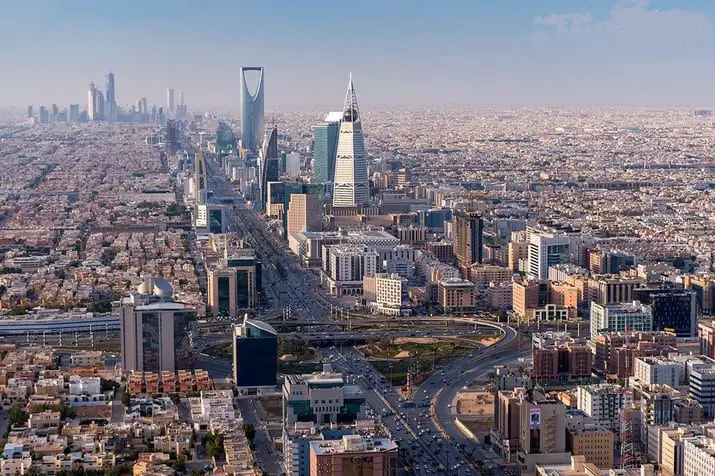
Hey. I lived in Saudi Arabia for much of my childhood. I migrated there when I was 4 and returned to India at 16. There is every kind of difference you can find to living in India and the Kingdom.
I will tell you what I can from the viewpoint of a middle-class person in the Kingdom, living in one of the major cities.
Major cities include Riyadh, Jeddah, Makkah, Madinah, Dammam, Khobar, Dhahran, Qatif, Jubail and Abha.
PUBLIC/SOCIAL LIFE AND FREEDOM
- In the Kingdom, life is generally more private than otherwise. There are malls, parks, beaches, and whatnot, and social gatherings of families are permitted, but there are a lot of restrictions you have to follow, especially if you are a foreigner.
- In most places, including educational institutions, you are not allowed to mingle with members of the opposite sex, unless it’s a family member, or both of you are out on a family outing. There is a religious police team called Mutawwa’een or Committee for Promotion of Virtue and Prevention of Vice that actively discourages any form of mixed-gender activities in public.
- Most Saudi people are, if not friendly, at least courteous towards expatriates. There are the occasional bands of young vandals and hooligans, but no more than that. Theft and other petty crimes are also very rare, due to the harsh penalties.
- Saudi Arabia has no theatres, and public performances of any kind, including music, are banned.
- Shopping is a major pastime for the people in KSA. Most commercial establishments stay open from mid-afternoon to just after midnight. A typical family outing would involve a couple of hours of shopping followed by a late dinner outside. Many Western, South Asian, as well as Arab restaurants, abound in the major cities.
- Traffic rules are followed strictly in the kingdom. You can’t bribe your way out. And yeah, KSA drives on the right. Also, it is best to stay alert for signs of rash driving from youth. KSA has a very high accident rate.
- All commercial establishments close down during prayer times, five times a day.
- During the months of Ramadan, it is expected of Non-Muslims also to not partake of eating or drinking in public, out of respect.
- Alcohol, LGBT activities, and drugs are strictly prohibited, and severe penalties may be awarded if caught.
- The most popular mode of transportation is a private car or taxi. Public transport is available between cities, but local transportation is nonexistent. The road system is, however, excellent. All major cities are also connected by the national air carrier, Saudia. There is a passenger railway line linking Dammam and Riyadh.
- Women above the age of 13 are expected to wear the black burqa/abaya at all times in public. Women can drive or travel without consent from their male guardians. They are also now allowed in many public gatherings such as sports matches, political gatherings, etc.
PRIVATE LIFE AND LIVING STANDARD
- Life in KSA within your privacy is pretty luxurious, given you have a good income, and work in a good company.
- The typical working day ranges from 8 am to 4 pm, even less during Ramadan. You have the rest of the day free to yourself. Working days were from Saturday to Wednesday, when I was there. Now, I think, to keep with world commerce, they have been shifted from Sunday to Thursday.
- Entertainment is primarily in the form of TV and the Internet, where censorship has not been applied. Most cable TV channels and Internet services are cheap and of good quality.
- You are allowed to practice your religion and culture in private, without disturbing the peace. Saudi Arabia prohibits bringing in non-Islamic religious items and books into the country, like idols, holy books, etc.
- There are large communities of expatriates living in the kingdom, so it is advisable to get a home near them.
- Foreigners cannot own land or houses. You will have to rent it from a citizen. However, most large companies pay for your house rent, your vehicle, and your insurances.
- Generally, life is peaceful, comfortable and even luxurious, when you don’t mind the lack of public freedoms.
- There are many educational institutions operating in major cities, affiliated to both Saudi boards as well as boards from countries like the USA, UK, France, India, Philippines, Egypt, Pakistan, etc.
- Healthcare is also pretty good in the cities. There are major hospitals with specialists from all over the world, and costs are not very high.
- Alcohol in any edible form, pork products, and behavioral drugs are strictly prohibited. The penalty for drug trafficking is death, with no exception.
- Saudi Arabia enjoys pretty lower costs of living than the other Gulf countries. The unit of currency is the Riyal (1 SAR = 100 Halal). Approximately SAR3.75 makes $1, or SAR1 is around INR16
CENSORSHIP
- Saudi Arabia strictly filters all internet content entering or leaving the kingdom.
- Pornography, anti-Islamic content, LGBT content, content against the royal family, etc. are some of the things that may be censored.
- Most programs appearing on satellite or cable TV are also censored. DVDs of films are available at major stores immediately after release, unless banned due to ‘inappropriate‘ content. Pirated CDs are also available at small black markets here and there.
- The same applies to books, journals, newspapers and other forms of printed media.
PENALTIES UNDER LAW
- Expatriates can reside in the kingdom only under ‘contract’ from a Saudi citizen or organization. In the past, some ‘contractors‘ even require the surrender of your passport while in residence in the country. They issue a residence permit called iqama which you use as your identity in the country.
- Saudi Law is derived from a strict Wahhabi interpretation of the Islamic Sharia. It can be quite harsh at times, and even discriminatory to expatriates, women, and non-Muslims.
- Crimes like protesting against the government, public nuisance, organizing mixed-gender or ‘inappropriate’ activities, cyber offenses, distributing pornography, alcohol consumption, economic offenses, etc can be penalized by jailing for differing periods or flogging (yeah, lashes!). And yeah, amputation for theft.
- Traffic violations are almost the only crimes punishable by fines.
- Illegal residents and immigrants are usually jailed and then deported.
- Crimes punishable by death include murder, rape, treason, armed robbery, terrorism, apostasy, blasphemy, adultery, witchcraft (!!!), LGBT activities, drug trafficking, etc.
- The authorities are kind of prejudiced towards expats. The background or causes of a crime are not taken into consideration at all during the trial. Eg. The case of an expat maid who killed her owner for repeated sexual abuse. She was beheaded.
- Amputations, hangings, beheading, flogging, etc are carried out in public, in the city squares on Friday mornings. It is supposed to act as a deterrent.
- Saudi Law also follows the blood money system. Under which, if any action of yours is proven to have resulted in damage to life, health or property of another individual, the victim or his family is given the choice to accept money as recompense from you (the amount is left to the victim’s discretion) or proceed with the verdict of the court. The blood money amount may vary with the gender, religion, ethnicity of the victim.
- The King of Saudi Arabia has the power to overturn any court’s judgment and issue pardons to death row prisoners.
That’s all I could think of, off the top of my head. Please ask me if you need any more clarifications, down in the comments section. Hope this helped.
